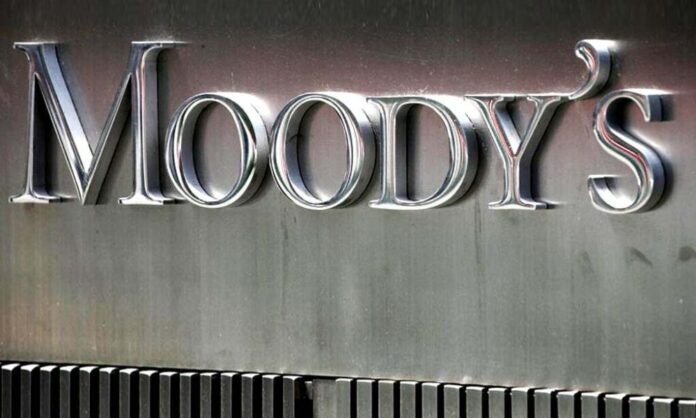Moody’s Investors Service on Wednesday affirmed the B3 long-term deposit ratings of Pakistan’s five largest banks and changed the outlook for banks’ long-term deposit ratings to negative from stable.
These banks are Allied Bank Limited (ABL), Habib Bank Limited (HBL), MCB Bank Limited (MCB), National Bank of Pakistan (NBP) and United Bank Limited (UBL).
The rating agency has also downgraded the long-term foreign currency counterparty risk ratings of ABL, MCB and UBL from B2 to B3; these ratings are now constrained by the Pakistani government’s foreign currency country ceiling, which has been lowered from B2 to B3.
In a statement, Moody’s said: “Today’s rating actions follow Moody’s decision to change the ratings of the government of Pakistan from stable to negative on June 2, 2022, from B3 and also to change the country caps for the country’s local and foreign currency to B1 and B3 to lower from Ba3 or B2. The government’s negative outlook is driven by Pakistan’s higher external vulnerability risk and uncertainty surrounding the government’s ability to rise additional external financing to meet its needs”.
According to the rating agency, the confirmation of the ratings of the five Pakistani banks reflects their stable, deposit-based funding profiles and sufficient liquidity. About 12% of assets are held in cash and interbank investments, and a further 45% are invested in government securities, much of which can be reported to the central bank should the need arise.
Furthermore, Moody’s said that Pakistani banks also demonstrate robust profitability, with a system-wide return on assets of 1.0% through 2021, while rising financial inclusion and other government initiatives improve lending opportunities. These strengths are offset by still high asset risks amid vulnerable macro and operating conditions, with 2021 system-wide non-performing loans (NPLs) at 7.9% of gross loans; and modest capital reserves, with the system-wide capital-to-assets ratio at 6.3% in 2021.
Moody’s noted that the negative outlook on bank ratings reflects:
1) The rated banks’ substantial holdings in securities, mostly government bonds, between 58 times their equity, thereby linking their creditworthiness to that of the government.
2) The risk of further weakening the state’s ability to support banks when needed. The latter is particularly relevant for the National Bank of Pakistan and Habib Bank Ltd., whose ratings include a step for improving state support.
The latter is particularly suitable for the National Bank of Pakistan and Habib Bank Ltd., whose ratings have a boost notch in support of the government. More broadly, the B3 deposit ratings of the five banks are at the same rating level as the government.
Therefore a potential weakening of the government’s credit profile will result in a weaker credit profile of the banks. The rating agency noted that any upward pressure on Pakistani bank ratings is limited given the negative outlook.
The latter is particularly relevant for the National Bank of Pakistan and Habib Bank Ltd., whose ratings include a boost notch in support of the government. More broadly, the B3 deposit ratings of the five banks are at the same rating level as the government.
Therefore, a potential weakening of the government’s credit profile will result in a weaker credit profile of the banks.
The rating agency noted that any upward pressure on Pakistani bank ratings is limited given the negative outlook. Banks’ perspective could change back to stable if the sovereign rating outlook stabilizes and banks maintain robust financial performance, it said.
Downward pressure on bank ratings would develop following a sovereign rating downgrade, reflecting the strong correlation between banks’ and governments’ credit profiles and signaling a reduction in the government’s ability to provide financial support to banks when needed.
Downward pressure on individual banks’ BCAs could also arise from deterioration in their financial metrics, particularly their asset quality, profitability and capital adequacy. Still, Moody believes this is a triggering event.


